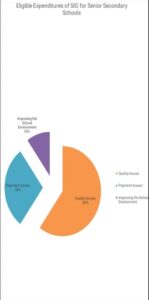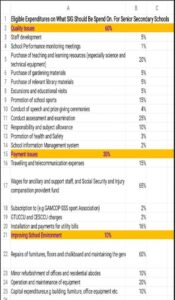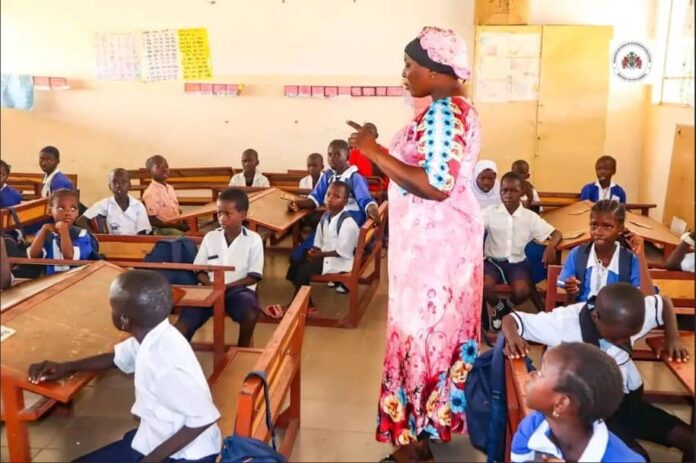By Istaou Jatta
The Gambia Government has taken steps over the past decade to provide free education for all public schools. With support from the World Bank, the initiative gave birth to the banning of all forms of levies in public and subvented schools.
While the effort leads to a significant increase in enrollment, a question still lingers over the quality of such services. This is confirmed in the 2018 Education Summary Report 2019, which reiterates the challenges being faced in improving student performance in public schools.
Evolution of Gross Enrollment Rates by Educational Level 2015- 2019

By contrast, the private schools performed better than the public schools in the National Assessment Test during the same period.
Experts, teachers and school administrators interviewed said the underperformance of students in public schools may be attributed to delayed payment or the insufficiency of the school improvement grant.

Late and insufficient
The SIG is an eleven-year World Bank-funded initiative that gives missionaries and public schools extra resources to improve education. The payment to schools is determined by their enrollment. The fund provides D100 for a student at the Lower Basic School, and D150 for those in ‘designated hardship areas’.
It pays D575 for students in Upper Basic Schools, which increases to D675 for ‘designated hardship areas’. The highest, D1440, is paid for each student sitting GABECE while D29 is paid towards the printing of results at the level of the school.
“The SIG doesn’t come early, sometimes it comes very late. Sometimes, we would go up to the time we are to write the exam but there is no money because SIG has not been paid,” said Musa Bah, the principal of Mbulumbu Senior Secondary School, in the North Bank Region. According to Louis Moses Mendy, the Permanent Secretary at the Ministry of Basic and Secondary Education, the delay doesn’t come from their ministry.
“We don’t have control over when finance releases the money which is not only for MoBSE but generally for all the sectors,” said Mendy.
Components of SIG expenditure


A good number of issues with the payment going to finance are critical to learning. For example, the excursion of students, purchase of teaching and learning materials and payment of some auxiliary staff (Source: Guidelines on the use of SIG for Senior Secondary Schools)
But even where it is paid, there are still concerns over its insufficiency. “… Whatever they used to determine D100 (for each student at Lower Basic School) eleven years ago is not realistic today,” argued Essa Sowe, the secretary general of the teachers’ union. “This means that what a D100 could do some eleven years ago, it cannot do now.”
Sowe believes the poor performance of students can be attributed to the late payment SIG, though the amount itself is insufficient to cater for the educational needs of the students.
“It is obvious that when the materials are not available we will not have effective teaching and learning,” said Sowe.
When teachers had “enough”
The final month of the first term of the school year nearly ended. The teachers from grant-aided did not receive their salaries and the first term of the School Improvement Grant for the mission was not paid. But this time, the teachers’ union has had enough.
On December 2nd, the Union commenced a sit-down strike which ended shortly after the government paid the SIG. In a statement, the Union said the delay in the payment of SIG has caused “significant distress and financial hardship” for its members.
Before the payment was effected, at least one day of class was disrupted by the strike.
“… There are certain things that are taught in the classroom that require excursion for students to properly understand. This is funded by the SIG,” said Essa Sowe, the deputy secretary general of the Union.
Ends
Editor’s note: This story has been produced under Freedom House (Promotion of Right to Justice) Investigative Journalism Fellowship 2024. However, the story has been independently produced in accordance with the ethics of journalism.




